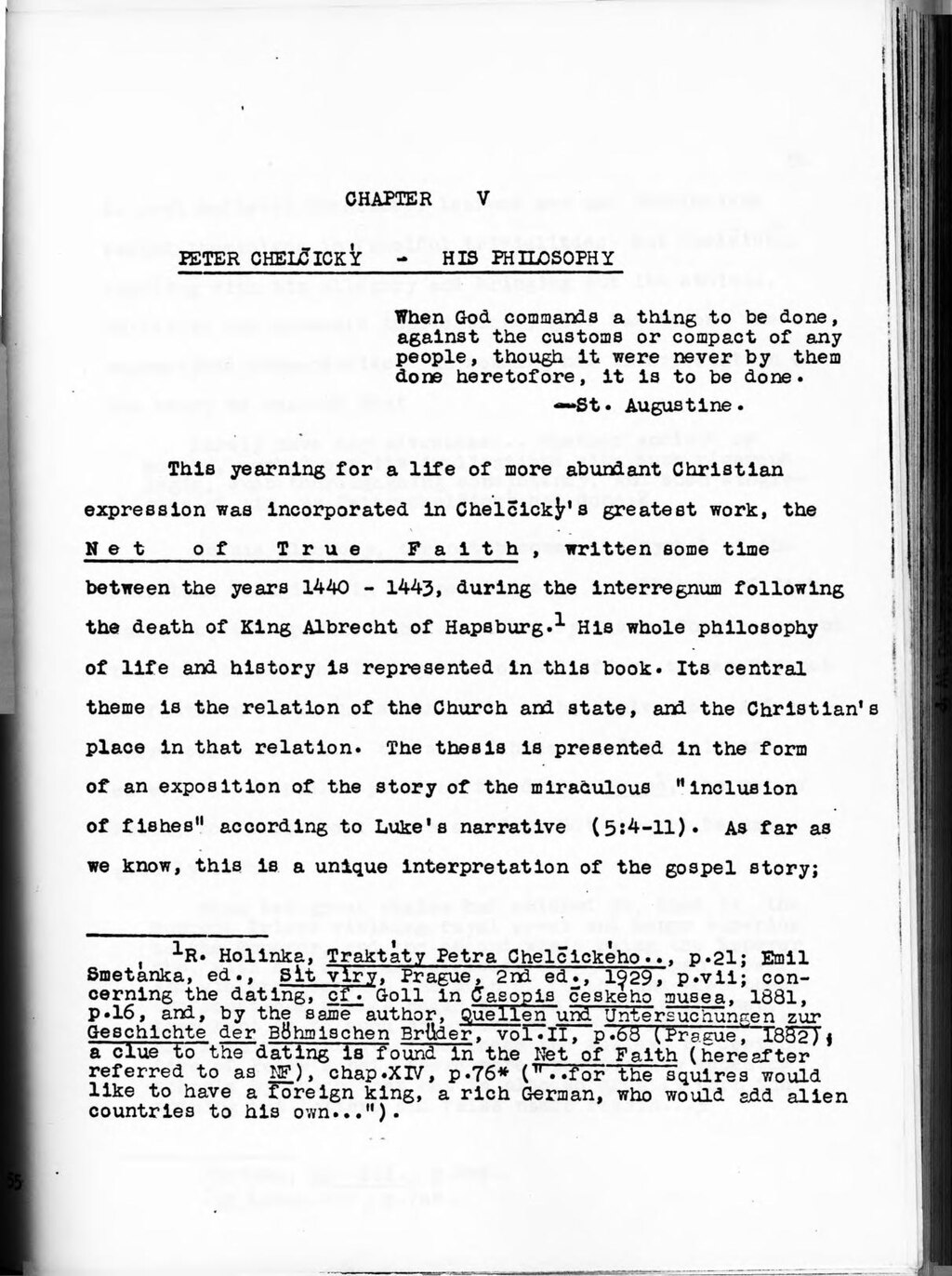CHAPTER V
PETER CHELC̄ICKY̍ – HIS PHILOSOPHY
When God commands a thing to be done, against the customs or compact of any people, though it were never by them done heretofore, it is to be done.
This yearning for a life of more abundant Christian expression was incorporated in Chelc̄icky̍'s greatest work, the Net of True Faith, written some time between the years 1440 1443, during the interregnum following the death of King Albrecht of Hapsburg.1 His whole philosophy of life and history is represented in this book. Its central theme is the relation of the Church and state, and the Christian's place in that relation. The thesis is presented in the form of an exposition of the story of the miraculous "inclusion of fishes" according to Luke's narrative (5:4–11). As far as we know, this is a unique interpretation of the gospel story;
1 R. Holinka, Trakta̍ty Petra Chelc̄icke̍ho. ., p.21; Emil Smeta̍nka, ed., Si̍t vi̍ry, Prague, 2nd ed., 1929, p.vii; concerning the dating, cf. Goll in C̄asopis c̄eske̍ho musea, 1881, p.16, and, by the same author, Quellen und Untersuchungen zur Geschichte der Böhmischen Brüder, vol.II, p.68 (Prague, 1882); a clue to the dating is found in the Net of Faith (here after referred to as NF), chap.XIV, p.76* (". .for the squires would like to have a foreign king, a rich German, who would add alien countries to his own. . .").
